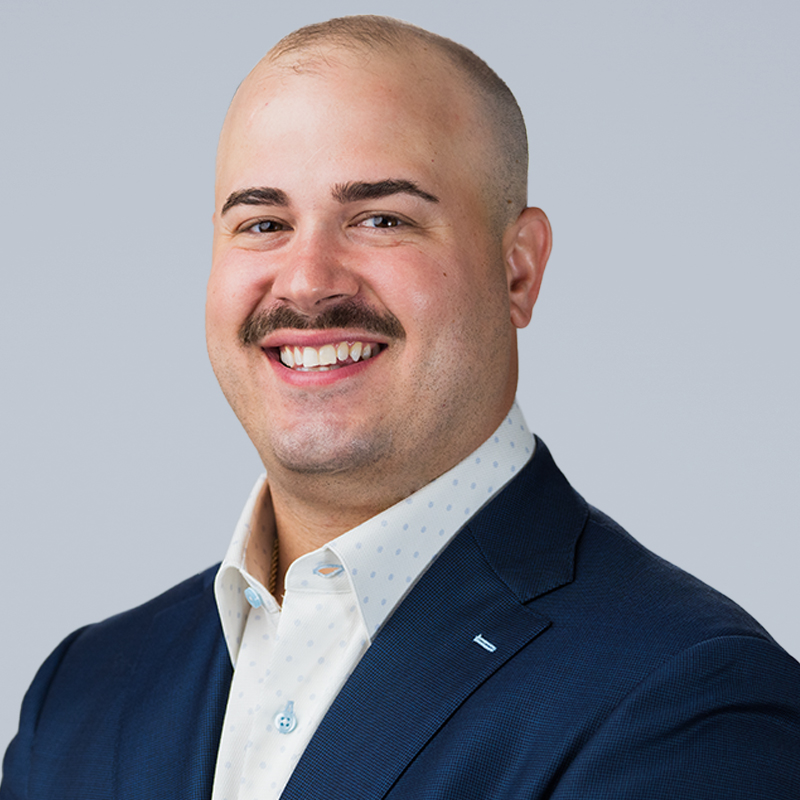Voluntary Benefits
Published by Michael Mazzeo on July 2nd, 2025

I never planned to be in the insurance industry. Like many others, I had a different path in mind (medical school, in my case). But sometimes, life has a way of changing your trajectory. In my case, my trajectory was changed by something deeply personal, something that explains why I believe in the power of benefits education.
In this industry, benefits education for your clients is about more than just completing the checklist during enrollment. Personalized, effective education can open the door to high-value conversations; the ones that move you beyond the basics and into true partnerships.
Because ultimately, benefits aren’t about what product you’re offering, it’s how you explain them that builds trust and can allow you the opportunity to impact and change the lives of those you serve. It may sound like an exaggeration, but insurance can, and does, change lives – I'm proof of that.
The impact of life insurance
I grew up in Hammonton, New Jersey, and was planning to go to medical school. My dad had very recently retired, and life seemed like it was going great. But when my father passed away unexpectedly, everything changed for me: my goals, my outlook, and my finances. But I was one of the lucky ones. To my surprise, my dad had both term AND permanent life insurance, and having those benefits meant my brother and I could stay in our father's home, that I could finish high school, and that we could maintain some sense of normalcy.We had family friends who stepped in to help us as well, many of whom were already in the insurance world. My father’s passing laid the groundwork, but they helped solidify the value of benefits education and I got to see firsthand the impact they had on other people just like my father.
That experience opened my eyes, and I consider myself to be the product of life insurance because of it. We had access to those benefits because someone had a conversation with my father – and that stuck with me. It's the “why” behind what I do, what WE do. Real life happens. Helping our clients truly understand the need and impact of these benefits is where we provide the most value.
Education isn’t about intelligence – it’s about context

After the experience with my father, I shifted gears from medical school to a career in the insurance industry, starting as a benefits counselor. This gave me hands on experience educating employees on their benefits and is something I’ve found invaluable in my career.
I remember vividly my first enrollment experience, I was consulting at a hospital. I was gearing up to speak with one of the primary doctors on site, and before I could talk about benefits with them, they looked at me and said, “Just sign me up for the best plan.” When I asked what he meant, they simply replied, “You know, the most expensive one.” That was a light bulb moment for me.
It doesn’t matter whether your clients are highly educated, or their salary, people often don’t understand how to evaluate benefits. And when they don't understand, they aren’t making he optimal decision for themselves and their loved ones.
That’s why I believe personalized education is key. When you take the time to break things down for your client or their employees, connect to their real lives, and guide them through their choices, it sticks. I’ve found that you can often facilitate more personalized education by doing one or more of the following:
- Assume your clients or employees are unsure about the benefits, even if they won’t say it
- People remember experiences and stories, not insurance jargon. Even if you don't have personal examples of your own, use friends, co-workers, or stories you've heard to bring benefits to life
- Focus on what fits your clients’ needs (life stage, needs, and budget)
- Framing the “why” by asking, “What would happen if…?” – it’s how you get people to connect emotionally and financially
…
Benefits education is changing. You may not get the same access to employees as in years past. You can’t just hand over a brochure and hope it clicks. You have to get personal, tell stories, and meet people where they are. That’s what makes it stick.When you can lead with education by helping clients understand not just what to offer but why, you become more than a vendor. You become a trusted partner, and may even inspire another kid to see our industry the way I do: not just as a career, but as a way to help others when they need it most.
